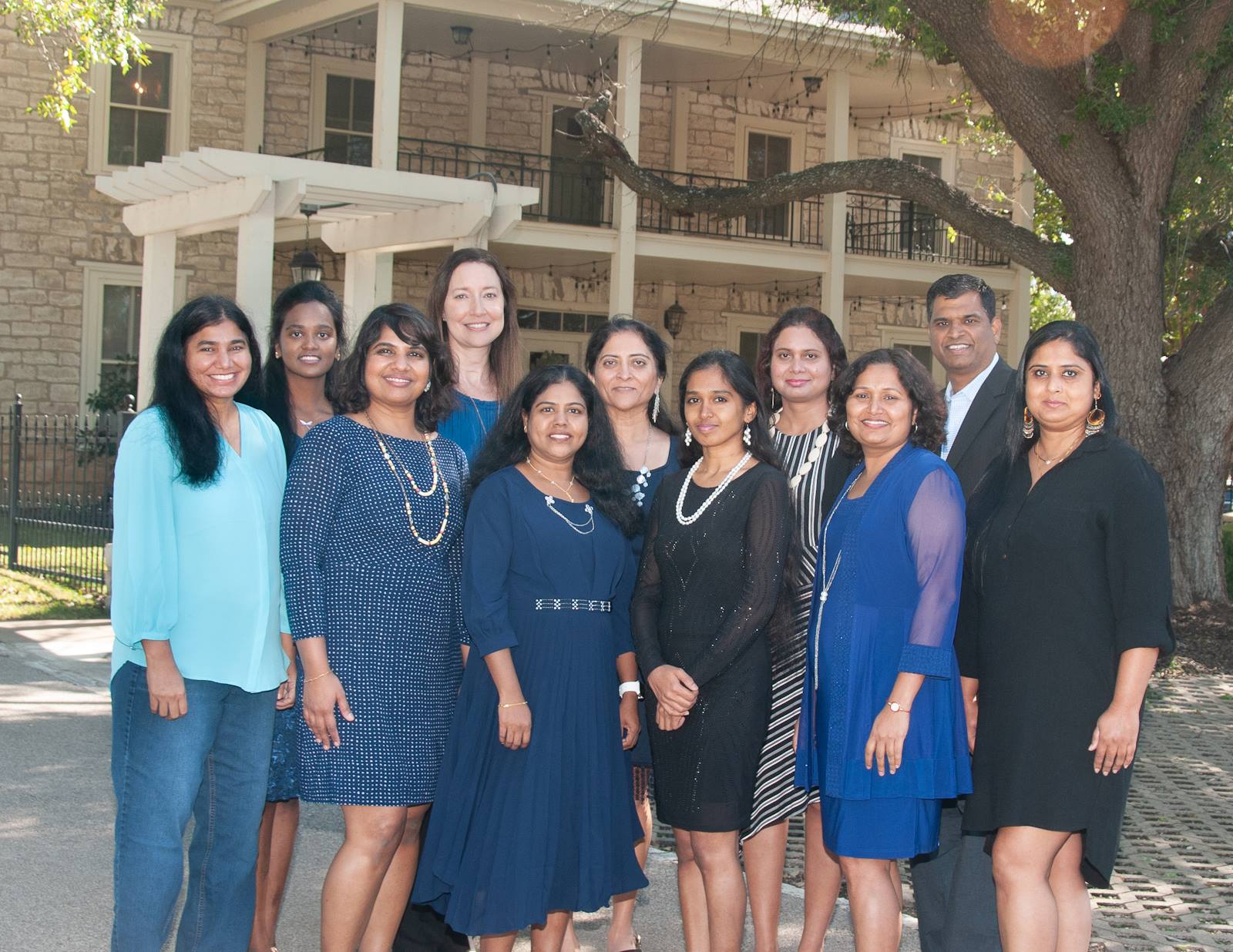As a real estate agent, growing your business is often synonymous with building a team. Yet, many solo agents struggle with the process of scaling beyond their own capabilities. For Swarna Mohan, Co-Founder of Full Circle Real Estate in Austin, Texas, the transition from solo agent to team leader was driven by necessity and passion. In this article, we delve into Swarna’s journey and her strategic approach to creating a high-performing, collaborative team that thrives in one of the most competitive real estate markets in the United States.
Real estate agents often reach a point where managing a growing volume of clients becomes unsustainable without additional support. This can lead to burnout, missed opportunities, and a decline in service quality. To scale effectively, many high-performing agents turn to building a team. But it’s not just about bringing on new agents – it’s about building a cohesive group that shares a vision and works together seamlessly.
One of the best examples of successful team-building is Swarna Mohan, Co-Founder and Team Leader of Full Circle Real Estate in Austin, Texas. Swarna’s journey from engineering to real estate leadership provides valuable insights into how to assemble and manage a thriving team while navigating unique challenges.
 From Corporate Engineering to Real Estate Leadership
From Corporate Engineering to Real Estate Leadership
Swarna Mohan began her professional career in the semiconductor industry, equipped with a strong technical foundation in electronics and a Master’s degree in Physics. After a decade in the corporate world, Swarna made a strategic pivot to real estate, leveraging her analytical mindset to excel as a solo agent. Her early years in real estate were marked by rapid growth – within her first six years, she closed over 350 transactions, making her one of the Austin Metro area’s top 500 agents.
Transitioning from Solo Agent to Team Leader
As Swarna’s client base grew, she realized that trying to handle every aspect of her business alone was not sustainable. The tipping point came in 2020 when she decided to build a team. The key was finding agents who complemented her strengths and shared her dedication to client service.
Her first partner was a new licensee she met at a brokerage event. This initial partnership was transformative, showing her the power of collaboration. Together, they built a support system that allowed them to be available to clients around the clock – a critical factor in maintaining high client satisfaction.
Expanded Section: Defining Team Roles and Expectations
 Swarna Mohan’s approach to defining team roles and expectations at Full Circle Real Estate is both flexible and strategic, taking into account the unique strengths and weaknesses of each team member. Her method of recruiting new agents is unconventional – she relies on personal connections and client referrals rather than job postings, which helps maintain a cohesive team culture. Many of her agents come from varied professional backgrounds such as IT, engineering, or homemaking, allowing Swarna to create a diverse team that brings a wide range of skills to the table. But to build a truly successful real estate team, clearly defining roles and expectations is crucial. Here’s a deeper look into best practices and strategies for structuring real estate teams, along with industry insights.
Swarna Mohan’s approach to defining team roles and expectations at Full Circle Real Estate is both flexible and strategic, taking into account the unique strengths and weaknesses of each team member. Her method of recruiting new agents is unconventional – she relies on personal connections and client referrals rather than job postings, which helps maintain a cohesive team culture. Many of her agents come from varied professional backgrounds such as IT, engineering, or homemaking, allowing Swarna to create a diverse team that brings a wide range of skills to the table. But to build a truly successful real estate team, clearly defining roles and expectations is crucial. Here’s a deeper look into best practices and strategies for structuring real estate teams, along with industry insights.
Best Practices for Defining Roles in Real Estate Teams
A successful real estate team requires a structure that assigns responsibilities based on each member’s expertise and interest. According to industry resources, effective teams often include a combination of specialized roles to handle different aspects of the business, from client acquisition to transaction management.
Here are some common roles found in top-performing real estate teams:
- Team Leader: The central figure responsible for overall team management, strategy, lead generation, and setting the tone for the team. This role is typically held by the most experienced member, such as Swarna in her team. They often oversee recruitment, set team goals, and handle critical client negotiations.
- Buyer’s Agent: This role is dedicated to managing the buyer side of transactions. A buyer’s agent follows up on leads, conducts showings, and handles negotiations for buyers. They play a pivotal role in lead conversion and maintaining client relationships.
- Listing Specialist: Focused on representing sellers, a listing agent is tasked with acquiring and marketing new listings. They manage outbound lead generation and handle pricing strategies, home staging, and listing presentations.
- Transaction Coordinator: A vital administrative role, the transaction coordinator handles all paperwork, deadlines, and compliance requirements during the transaction process. This allows the agents to focus on lead generation and closing deals without getting bogged down in administrative tasks.
- Inside Sales Agent (ISA): The ISA is responsible for generating and qualifying leads, often through cold calling, managing inbound inquiries, and nurturing leads until they are ready for the primary agents to handle. This role is key for keeping a steady flow of clients into the pipeline.
- Marketing Coordinator: The marketing specialist handles all aspects of team branding, social media management, content creation, and promotional campaigns. They are instrumental in generating new business opportunities through digital and traditional marketing channels.
- Showing Assistant: This role supports the buyer’s agent by conducting property showings, managing appointments, and handling inspections and appraisals. Showing assistants are often newer agents gaining experience before taking on larger responsibilities.
Tailoring Roles to Maximize Team Potential

Swarna Mohan with her brokerage partners, Chak Karri and Sivajyothi Rachumalla, at Full Circle Real Estate in Austin, Texas. Together, they have built a thriving brokerage with a focus on collaboration, mentorship, and delivering exceptional client service.
Swarna believes that understanding each team member’s unique strengths is crucial for effective role definition. For example, one agent may be excellent at managing complex transactions, while another is skilled in social media marketing. By aligning roles with these natural strengths, she maximizes each agent’s potential and ensures that every team member contributes meaningfully to the overall success.
Using Technology to Optimize Role Efficiency
In addition to defining roles and expectations, leveraging technology can significantly improve team efficiency. Implementing CRM systems like Great Agent can help agents track leads, manage client interactions, and automate follow-ups, while transaction management platforms like Dotloop streamline the administrative side of deals. Standardizing workflows using these tools ensures consistency and reduces the time agents spend on non-core activities.
Providing Ongoing Training and Development
To keep her team at the top of their game, Swarna invests in professional development through regular training sessions, mentorship programs, and industry resources. This commitment to continuous learning ensures that her agents stay up-to-date with the latest real estate trends and best practices, enabling them to deliver top-tier service to clients.
By implementing a structured yet flexible approach to defining roles and expectations, Swarna has created a high-performing team that is adaptable, motivated, and equipped to handle the ever-changing demands of the real estate market. This approach not only improves team efficiency but also enhances job satisfaction and retention among agents/
Cultivating a Collaborative Culture
One of the defining elements of Full Circle Real Estate’s success is its strong collaborative culture. Swarna’s team functions as a cohesive entity, prioritizing teamwork and shared success over individual competition. “We’re not here to compete; we’re here to collaborate and leverage each other’s strengths,” she explains. This philosophy sets the stage for a thriving team environment that consistently delivers outstanding results.
The impact of a positive team culture is profound: It leads to higher productivity, greater job satisfaction, and enhanced retention rates, which are critical in the competitive real estate industry. A positive team culture isn’t just a feel-good factor; it directly contributes to the bottom line. Studies show that real estate teams with high levels of collaboration and mutual support have up to 17% higher productivity than those that operate with a more siloed, individualistic approach.
Strategies to Foster Collaboration at Full Circle Real Estate
- Monthly Networking Events and Team Meetings To maintain this collaborative culture, Full Circle Real Estate hosts monthly networking events and regular team meetings, where agents share insights, brainstorm solutions, and discuss both wins and challenges. These gatherings foster a sense of camaraderie and ensure that every team member feels valued and heard. This practice not only helps in building trust but also in sharing best practices and problem-solving strategies.
- Structured Mentorship Programs One of the most effective ways to cultivate a positive culture is through mentorship programs. Full Circle pairs experienced agents with newcomers, facilitating knowledge transfer, skill development, and providing the support new agents need to succeed. This structured mentorship helps agents feel supported and gives senior agents a platform to develop their leadership skills.
- Open Communication Channels Open communication is at the heart of a collaborative culture. Full Circle encourages its agents to provide feedback and share ideas without hesitation. Swarna and her leadership team conduct regular one-on-one sessions, where agents can voice concerns or suggest new approaches. This type of transparent communication reduces misunderstandings and helps to build a cohesive team environment where everyone feels involved and valued.
- Continuous Professional Development A culture of continuous learning is another pillar of Full Circle’s collaborative environment. Offering agents regular training sessions, workshops, and access to industry webinars ensures that everyone stays at the top of their game. This emphasis on professional growth helps attract high-performing agents and motivates existing team members to stay committed..
- Recognition and Celebrating Wins Recognition is a powerful motivator in any team setting. Full Circle acknowledges both individual and team achievements regularly through internal newsletters, social media shout-outs, and monthly awards. Recognizing even small contributions not only boosts morale but also strengthens the bond between team members. Implementing this practice has been shown to increase agent retention and satisfaction significantly.
Expanding into Syndication and Commercial Real Estate
A significant turning point in Swarna’s career came when she moved beyond residential transactions and started exploring syndication and commercial real estate. Syndication, for those unfamiliar, involves pooling funds from multiple investors to purchase or develop large-scale real estate projects. Swarna’s first experience in syndication was with a development project initiated by a residential client. Since then, she has managed five syndication projects ranging from 7 acres to 550 acres in the Austin area.
Her syndication business allows her to train agents on a different set of skills, from investor relations to project management. This diversification has been crucial in establishing Full Circle Real Estate as a multi-faceted brokerage capable of handling complex commercial deals.
Overcoming Challenges as a Woman in Commercial Real Estate

The initial team of Full Circle Real Estate at its inception in December 2022 – driven by passion, innovation, and a shared vision for transforming the Austin real estate market.
Navigating the commercial real estate sector presents its own set of challenges, especially for women. Swarna has faced gender bias and stereotypes but has consistently risen above them with resilience and empathy. Her ability to balance the demands of work and single motherhood is a testament to her dedication and perseverance.
Swarna’s commitment to empowering other women is evident in her efforts to recruit homemakers and create women-centric teams. “Financial independence is transformative,” she says, “and I want to help others achieve it.” Her focus is not just on selling properties but on building confidence and leadership skills in her agents.
Recruitment Strategies: Attracting the Right Talent
When it comes to recruitment, Swarna’s strategy is unconventional but highly effective. She doesn’t rely on job ads or traditional hiring methods. Instead, most of her agents come through her existing network or are introduced by clients. “We meet these agents at open houses, or they come recommended by someone we know,” she explains. This approach ensures that new agents already align with the team’s culture and values.
Qualities Swarna looks for in new agents include:
- An eagerness to learn.
- A willingness to collaborate.
- A strong work ethic.
- Backgrounds that complement existing team skills, whether in technology, finance, or other fields.
Scaling and Managing Growth
Full Circle Real Estate has grown rapidly, expanding to over 60 agents. To manage this growth, Swarna implemented a mentorship program where seasoned agents guide new recruits through their first few transactions. “Everyone has the freedom to explore different types of deals – whether it’s residential, commercial, or land development – but mentorship is key,” she says.
The Future of Full Circle Real Estate
Looking ahead, Swarna’s vision is to expand Full Circle’s reach beyond the Austin metro area. She aims to build a brokerage that is known not just for its transaction volume but for its positive impact on agents’ careers and clients’ lives. Her long-term goal is to create a legacy of leadership that extends beyond her personal success and influences the industry at large.
Conclusion
Swarna Mohan’s story is one of perseverance, strategic growth, and a commitment to empowering others. From navigating the complexities of syndication to creating a collaborative team culture, she has set a blueprint for success in real estate. Her approach to leadership – focusing on the strengths of her team and creating opportunities for growth – is a model that any agent looking to build a high-performing team can learn from.




 Where do we send your free Great Agent demo?
Where do we send your free Great Agent demo?





 We just need some facts about your organization:
We just need some facts about your organization:
COMMENTS